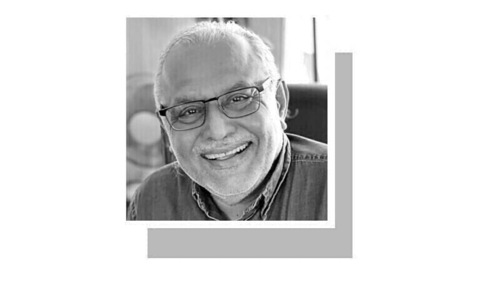“LANGUAGE is not religion. It is a yardstick to measure the civilisational march of a community and its people.” With these words, the Indian supreme court, in its recent judgement ‘Mrs Varshatai vs State of Maharashtra’, reaffirmed a crucial constitutional principle: linguistic diversity is essential to national unity. By striking down a move to exclude Urdu signage from public spaces, the court underscored that every language spoken by citizens is part of the nation’s shared heritage and deserves recognition, respect, and constitutional protection.
This judgement offers an important lesson for Pakistan’s constitutional development. Stressing that the purpose of language is communication, not exclusion, the court warned against using language as a tool of marginalisation. India’s experience, where multiple states officially recognise various languages alongside Hindi, illustrates that linguistic pluralism fortifies democratic unity rather than weakening it. Pakistan’s own history reveals a similar truth; its national identity has always been shaped by linguistic diversity, not uniformity.
Recognising this, our constitutional framework balances national unity with regional expression. Article 251 of the Constitution mandates the promotion of Urdu as the national language while explicitly allowing the continued use and development of provincial languages. Article 28 guarantees every citizen, group, or community the right to preserve and promote their distinct language, script, and culture.
In ‘Muhammad Kowkab Iqbal vs Government of Pakistan’ (2015), then chief justice Jawwad S. Khawaja affirmed that the Constitution envisions promoting Urdu alongside the protection of regional languages. Yet judicial discourse has primarily emphasised the promotion of Urdu, giving insufficient attention to the broader constitutional promise of linguistic equality. In a multilingual society like ours, this promise demands not merely formal acknowledgement but active realisation.
History offers a sobering reminder of the costs of linguistic exclusion. The Bengali language movement of the early 1950s, born from demands to recognise Bengali as a state language, demonstrates how ignoring linguistic plurality can threaten national cohesion. As Dr Ayesha Jalal notes in The Struggle for Pakistan, the early marginalisation of linguistic and cultural identities alienated the majority, laying the foundations for eventual division. Our experience underscores that internal exclusion poses a graver threat to unity than external adversaries. Language, therefore, lies at the very centre of national identity.
It falls to the courts to breathe life into Article 28.
A commitment to constitutionalism must embrace the pluralistic realities of Pakistan’s society. Moving beyond rigid conceptions of national identity requires recognising and protecting the multiplicity of languages, cultures, and histories that coexist in the country. Article 28 must not be relegated to a symbolic status but be treated as a substantive, enforceable right necessary for preserving the nation’s cultural fabric.
The consequences of neglecting linguistic rights extend far beyond cultural loss. Barriers to language access obstruct rights such as access to justice, education, and equality, safeguarded under Articles 9, 25, and 25A. Linguistic human rights scholar Tove Skutnabb-Kangas characterises linguistic exclusion as a form of systemic disenfranchisement. In Pakistan, safeguarding all mother tongues is not simply a matter of cultural preservation; it is a constitutional obligation tied to the dignity and equality of all citizens.
Constitutions, like ‘living trees’, must grow and adapt to meet the evolving needs of society. It therefore falls to both the Supreme Court and the high courts to breathe life into Article 28, and interpret it as a positive and enforceable right, requiring the state to take affirmative measures to protect and promote minority and regional languages. Such an interpretation would not constitute judicial overreach, but rather a faithful realisation of constitutional principles. Indeed, the Supreme Court has already recognised in its 2015 judgement that the right to
language is directly linked to the realisation of various fundamental rights protected by the Constitution, especially the right to dignity and equality. Extending constitutional protection to all linguistic communities is a necessary continuation of that vision.
As Faiz Ahmed Faiz wrote, “Bol ke lab azaad hain tere” (Speak for your lips are free). Article 28, therefore, is not a ceremonial promise, it is a binding constitutional guarantee owed to every citizen who speaks Sindhi, Pashto, Punjabi, Balochi, Seraiki, Brahui, and the many other languages that together weave Pakistan’s cultural tapestry. To honour the Constitution is to honour all voices spoken within its borders. By fully enforcing linguistic rights, the courts can ensure that no language, no culture, and no citizen is ever left unheard again.
The writer is a judicial law clerk to the senior puisne judge at the Supreme Court of Pakistan.
Published in Dawn, May 17th, 2025











































